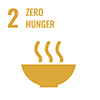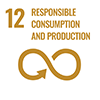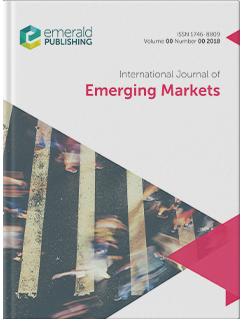
International Journal of Emerging Markets
Before you start
For queries relating to the status of your paper pre decision, please contact the Editor or Journal Editorial Office. For queries post acceptance, please contact the Supplier Project Manager. These details can be found in the Editorial Team section.
Author responsibilities
Our goal is to provide you with a professional and courteous experience at each stage of the review and publication process. There are also some responsibilities that sit with you as the author. Our expectation is that you will:
- Respond swiftly to any queries during the publication process.
- Be accountable for all aspects of your work. This includes investigating and resolving any questions about accuracy or research integrity.
- Treat communications between you and the journal editor as confidential until an editorial decision has been made.
- Read about our research ethics for authorship. These state that you must:
- Include anyone who has made a substantial and meaningful contribution to the submission (anyone else involved in the paper should be listed in the acknowledgements).
- Exclude anyone who hasn’t contributed to the paper, or who has chosen not to be associated with the research.
- In accordance with COPE’s position statement on AI tools, Large Language Models cannot be credited with authorship as they are incapable of conceptualising a research design without human direction and cannot be accountable for the integrity, originality, and validity of the published work. The author(s) must describe the content created or modified as well as appropriately cite the name and version of the AI tool used; any additional works drawn on by the AI tool should also be appropriately cited and referenced. Standard tools that are used to improve spelling and grammar are not included within the parameters of this guidance. The Editor and Publisher reserve the right to determine whether the use of an AI tool is permissible.
- If your article involves human participants, you must ensure you have considered whether or not you require ethical approval for your research, and include this information as part of your submission. Find out more about informed consent.
Generative AI usage key principles
- Copywriting any part of an article using a generative AI tool/LLM would not be permissible, including the generation of the abstract or the literature review, for as per Emerald’s authorship criteria, the author(s) must be responsible for the work and accountable for its accuracy, integrity, and validity.
- The generation or reporting of results using a generative AI tool/LLM is not permissible, for as per Emerald’s authorship criteria, the author(s) must be responsible for the creation and interpretation of their work and accountable for its accuracy, integrity, and validity.
- The in-text reporting of statistics using a generative AI tool/LLM is not permissible due to concerns over the authenticity, integrity, and validity of the data produced, although the use of such a tool to aid in the analysis of the work would be permissible.
- Copy-editing an article using a generative AI tool/LLM in order to improve its language and readability would be permissible as this mirrors standard tools already employed to improve spelling and grammar, and uses existing author-created material, rather than generating wholly new content, while the author(s) remains responsible for the original work.
- The submission and publication of images created by AI tools or large-scale generative models is not permitted.
Research and publishing ethics
Our editors and employees work hard to ensure the content we publish is ethically sound. To help us achieve that goal, we closely follow the advice laid out in the guidelines and flowcharts on the COPE (Committee on Publication Ethics) website.
We have also developed our research and publishing ethics guidelines. If you haven’t already read these, we urge you to do so – they will help you avoid the most common publishing ethics issues.
A few key points:
- Any manuscript you submit to this journal should be original. That means it should not have been published before in its current, or similar, form. Exceptions to this rule are outlined in our pre-print and conference paper policies. If any substantial element of your paper has been previously published, you need to declare this to the journal editor upon submission. Please note, the journal editor may use Crossref Similarity Check to check on the originality of submissions received. This service compares submissions against a database of 49 million works from 800 scholarly publishers.
- Your work should not have been submitted elsewhere and should not be under consideration by any other publication.
- If you have a conflict of interest, you must declare it upon submission; this allows the editor to decide how they would like to proceed. Read about conflict of interest in our research and publishing ethics guidelines.
- By submitting your work to Emerald, you are guaranteeing that the work is not in infringement of any existing copyright.
Third party copyright permissions
Prior to article submission, you need to ensure you’ve applied for, and received, written permission to use any material in your manuscript that has been created by a third party. Please note, we are unable to publish any article that still has permissions pending. The rights we require are:
- Non-exclusive rights to reproduce the material in the article or book chapter.
- Print and electronic rights.
- Worldwide English-language rights.
- To use the material for the life of the work. That means there should be no time restrictions on its re-use e.g. a one-year licence.
We are a member of the International Association of Scientific, Technical, and Medical Publishers (STM) and participate in the STM permissions guidelines, a reciprocal free exchange of material with other STM publishers. In some cases, this may mean that you don’t need permission to re-use content. If so, please highlight this at the submission stage.
Please take a few moments to read our guide to publishing permissions to ensure you have met all the requirements, so that we can process your submission without delay.
Open access submissions and information
All our journals currently offer two open access (OA) publishing paths; gold open access and green open access.
If you would like to, or are required to, make the branded publisher PDF (also known as the version of record) freely available immediately upon publication, you can select the gold open access route once your paper is accepted.
If you’ve chosen to publish gold open access, this is the point you will be asked to pay the APC (article processing charge). This varies per journal and can be found on our APC price list or on the editorial system at the point of submission. Your article will be published with a Creative Commons CC BY 4.0 user licence, which outlines how readers can reuse your work.
Alternatively, if you would like to, or are required to, publish open access but your funding doesn’t cover the cost of the APC, you can choose the green open access, or self-archiving, route. As soon as your article is published, you can make the author accepted manuscript (the version accepted for publication) openly available, free from payment and embargo periods.
You can find out more about our open access routes, our APCs and waivers and read our FAQs on our open research page.
Transparency and Openness Promotion (TOP) Guidelines
We are a signatory of the Transparency and Openness Promotion (TOP) Guidelines, a framework that supports the reproducibility of research through the adoption of transparent research practices. That means we encourage you to:
- Cite and fully reference all data, program code, and other methods in your article.
- Include persistent identifiers, such as a Digital Object Identifier (DOI), in references for datasets and program codes. Persistent identifiers ensure future access to unique published digital objects, such as a piece of text or datasets. Persistent identifiers are assigned to datasets by digital archives, such as institutional repositories and partners in the Data Preservation Alliance for the Social Sciences (Data-PASS).
- Follow appropriate international and national procedures with respect to data protection, rights to privacy and other ethical considerations, whenever you cite data. For further guidance please refer to our research and publishing ethics guidelines. For an example on how to cite datasets, please refer to the references section below.
Prepare your submission
Manuscript support services
We are pleased to partner with Editage, a platform that connects you with relevant experts in language support, translation, editing, visuals, consulting, and more. After you’ve agreed a fee, they will work with you to enhance your manuscript and get it submission-ready.
This is an optional service for authors who feel they need a little extra support. It does not guarantee your work will be accepted for review or publication.
Manuscript requirements
Before you submit your manuscript, it’s important you read and follow the guidelines below. You will also find some useful tips in our structure your journal submission how-to guide.
|
Format |
Article files should be provided in Microsoft Word format. While you are welcome to submit a PDF of the document alongside the Word file, PDFs alone are not acceptable. LaTeX files can also be used but only if an accompanying PDF document is provided. Acceptable figure file types are listed further below. |
|
Article length / word count |
Articles should be between 7500 and 10000 words in length. This includes all text, for example, the structured abstract, references, all text in tables, and figures and appendices. Please allow 280 words for each figure or table. |
|
Article title |
A concisely worded title should be provided. |
|
Author details |
The names of all contributing authors should be added to the ScholarOne submission; please list them in the order in which you’d like them to be published. Each contributing author will need their own ScholarOne author account, from which we will extract the following details:
In multi-authored papers, it’s important that ALL authors that have made a significant contribution to the paper are listed. Those who have provided support but have not contributed to the research should be featured in an acknowledgements section. You should never include people who have not contributed to the paper or who don’t want to be associated with the research. Read about our research ethics for authorship. |
|
Biographies and acknowledgements |
If you want to include these items, save them in a separate Microsoft Word document and upload the file with your submission. Where they are included, a brief professional biography of not more than 100 words should be supplied for each named author. |
|
Research funding |
Your article must reference all sources of external research funding in the acknowledgements section. You should describe the role of the funder or financial sponsor in the entire research process, from study design to submission. |
|
Structured abstract |
All submissions must include a structured abstract, following the format outlined below. These four sub-headings and their accompanying explanations must always be included:
The following three sub-headings are optional and can be included, if applicable:
The maximum length of your abstract should be 250 words in total, including keywords and article classification (see the sections below). |
|
Keywords |
Your submission should include up to 12 appropriate and short keywords that capture the principal topics of the paper. Our Creating an SEO-friendly manuscript how to guide contains some practical guidance on choosing search-engine friendly keywords. Please note, while we will always try to use the keywords you’ve suggested, the in-house editorial team may replace some of them with matching terms to ensure consistency across publications and improve your article’s visibility. |
|
Article classification |
During the submission process, you will be asked to select a type for your paper; the options are listed below. If you don’t see an exact match, please choose the best fit:
You will also be asked to select a category for your paper. The options for this are listed below. If you don’t see an exact match, please choose the best fit: Research paper. Reports on any type of research undertaken by the author(s), including:
Viewpoint. Covers any paper where content is dependent on the author's opinion and interpretation. This includes journalistic and magazine-style pieces. Technical paper. Describes and evaluates technical products, processes or services. Conceptual paper. Focuses on developing hypotheses and is usually discursive. Covers philosophical discussions and comparative studies of other authors’ work and thinking. Case study. Describes actual interventions or experiences within organizations. It can be subjective and doesn’t generally report on research. Also covers a description of a legal case or a hypothetical case study used as a teaching exercise. Literature review. This category should only be used if the main purpose of the paper is to annotate and/or critique the literature in a particular field. It could be a selective bibliography providing advice on information sources, or the paper may aim to cover the main contributors to the development of a topic and explore their different views. General review. Provides an overview or historical examination of some concept, technique or phenomenon. Papers are likely to be more descriptive or instructional (‘how to’ papers) than discursive. |
|
Headings |
Headings must be concise, with a clear indication of the required hierarchy. |
|
Notes/endnotes |
Notes or endnotes should only be used if absolutely necessary. They should be identified in the text by consecutive numbers enclosed in square brackets. These numbers should then be listed, and explained, at the end of the article. |
|
Figures |
All figures (charts, diagrams, line drawings, webpages/screenshots, and photographic images) should be submitted electronically. Both colour and black and white files are accepted.
|
|
Tables |
Tables should be typed and submitted in a separate file to the main body of the article. The position of each table should be clearly labelled in the main body of the article with corresponding labels clearly shown in the table file. Tables should be numbered consecutively in Roman numerals (e.g. I, II, etc.). Give each table a brief title. Ensure that any superscripts or asterisks are shown next to the relevant items and have explanations displayed as footnotes to the table, figure or plate. |
|
Supplementary files |
Where tables, figures, appendices, and other additional content are supplementary to the article but not critical to the reader’s understanding of it, you can choose to host these supplementary files alongside your article on Insight, Emerald’s content-hosting platform (this is Emerald's recommended option as we are able to ensure the data remain accessible), or on an alternative trusted online repository. All supplementary material must be submitted prior to acceptance. Emerald recommends that authors use the following two lists when searching for a suitable and trusted repository: If you choose to host your supplementary files on Insight, you must submit these as separate files alongside your article. Files should be clearly labelled in such a way that makes it clear they are supplementary; Emerald recommends that the file name is descriptive and that it follows the format ‘Supplementary_material_appendix_1’ or ‘Supplementary tables’. All supplementary material must be mentioned at the appropriate moment in the main text of the article; there is no need to include the content of the file only the file name. A link to the supplementary material will be added to the article during production, and the material will be made available alongside the main text of the article at the point of EarlyCite publication. Please note that Emerald will not make any changes to the material; it will not be copy-edited or typeset, and authors will not receive proofs of this content. Emerald therefore strongly recommends that you style all supplementary material ahead of acceptance of the article. Emerald Insight can host the following file types and extensions:
If you choose to use an alternative trusted online repository, you should ensure that the supplementary material is hosted on the repository ahead of submission, and then include a link only to the repository within the article. It is the responsibility of the submitting author to ensure that the material is free to access and that it remains permanently available. Where an alternative trusted online repository is used, the files hosted should always be presented as read-only; please be aware that such usage risks compromising your anonymity during the review process if the repository contains any information that may enable the reviewer to identify you; as such, we recommend that all links to alternative repositories are reviewed carefully prior to submission. Please note that extensive supplementary material may be subject to peer review; this is at the discretion of the journal Editor and dependent on the content of the material (for example, whether including it would support the reviewer making a decision on the article during the peer review process). |
|
References |
All references in your manuscript must be formatted using one of the recognised Harvard styles. You are welcome to use the Harvard style Emerald has adopted – we’ve provided a detailed guide below. Want to use a different Harvard style? That’s fine, our typesetters will make any necessary changes to your manuscript if it is accepted. Please ensure you check all your citations for completeness, accuracy and consistency. Emerald’s Harvard referencing style References to other publications in your text should be written as follows:
A few other style points. These apply to both the main body of text and your final list of references.
At the end of your paper, please supply a reference list in alphabetical order using the style guidelines below. Where a DOI is available, this should be included at the end of the reference. |
|
For books |
Surname, initials (year), title of book, publisher, place of publication. e.g. Harrow, R. (2005), No Place to Hide, Simon & Schuster, New York, NY. |
|
For book chapters |
Surname, initials (year), "chapter title", editor's surname, initials (Ed.), title of book, publisher, place of publication, page numbers. e.g. Calabrese, F.A. (2005), "The early pathways: theory to practice – a continuum", Stankosky, M. (Ed.), Creating the Discipline of Knowledge Management, Elsevier, New York, NY, pp.15-20. |
|
For journals |
Surname, initials (year), "title of article", journal name, volume issue, page numbers. e.g. Capizzi, M.T. and Ferguson, R. (2005), "Loyalty trends for the twenty-first century", Journal of Consumer Marketing, Vol. 22 No. 2, pp.72-80. |
|
For published |
Surname, initials (year of publication), "title of paper", in editor’s surname, initials (Ed.), title of published proceeding which may include place and date(s) held, publisher, place of publication, page numbers. e.g. Wilde, S. and Cox, C. (2008), “Principal factors contributing to the competitiveness of tourism destinations at varying stages of development”, in Richardson, S., Fredline, L., Patiar A., & Ternel, M. (Ed.s), CAUTHE 2008: Where the 'bloody hell' are we?, Griffith University, Gold Coast, Qld, pp.115-118. |
|
For unpublished |
Surname, initials (year), "title of paper", paper presented at [name of conference], [date of conference], [place of conference], available at: URL if freely available on the internet (accessed date). e.g. Aumueller, D. (2005), "Semantic authoring and retrieval within a wiki", paper presented at the European Semantic Web Conference (ESWC), 29 May-1 June, Heraklion, Crete, available at: http://dbs.uni-leipzig.de/file/aumueller05wiksar.pdf (accessed 20 February 2007). |
|
For working papers |
Surname, initials (year), "title of article", working paper [number if available], institution or organization, place of organization, date. e.g. Moizer, P. (2003), "How published academic research can inform policy decisions: the case of mandatory rotation of audit appointments", working paper, Leeds University Business School, University of Leeds, Leeds, 28 March. |
|
For encyclopaedia entries |
Title of encyclopaedia (year), "title of entry", volume, edition, title of encyclopaedia, publisher, place of publication, page numbers. e.g. Encyclopaedia Britannica (1926), "Psychology of culture contact", Vol. 1, 13th ed., Encyclopaedia Britannica, London and New York, NY, pp.765-771. (for authored entries, please refer to book chapter guidelines above) |
|
For newspaper |
Surname, initials (year), "article title", newspaper, date, page numbers. e.g. Smith, A. (2008), "Money for old rope", Daily News, 21 January, pp.1, 3-4. |
|
For newspaper |
Newspaper (year), "article title", date, page numbers. e.g. Daily News (2008), "Small change", 2 February, p.7. |
|
For archival or other unpublished sources |
Surname, initials (year), "title of document", unpublished manuscript, collection name, inventory record, name of archive, location of archive. e.g. Litman, S. (1902), "Mechanism & Technique of Commerce", unpublished manuscript, Simon Litman Papers, Record series 9/5/29 Box 3, University of Illinois Archives, Urbana-Champaign, IL. |
|
For electronic sources |
If available online, the full URL should be supplied at the end of the reference, as well as the date that the resource was accessed. Surname, initials (year), “title of electronic source”, available at: persistent URL (accessed date month year). e.g. Weida, S. and Stolley, K. (2013), “Developing strong thesis statements”, available at: https://owl.english.purdue.edu/owl/resource/588/1/ (accessed 20 June 2018) Standalone URLs, i.e. those without an author or date, should be included either inside parentheses within the main text, or preferably set as a note (Roman numeral within square brackets within text followed by the full URL address at the end of the paper). |
|
For data |
Surname, initials (year), title of dataset, name of data repository, available at: persistent URL, (accessed date month year). e.g. Campbell, A. and Kahn, R.L. (2015), American National Election Study, 1948, ICPSR07218-v4, Inter-university Consortium for Political and Social Research (distributor), Ann Arbor, MI, available at: https://doi.org/10.3886/ICPSR07218.v4 (accessed 20 June 2018) |
Submit your manuscript
There are a number of key steps you should follow to ensure a smooth and trouble-free submission.
Double check your manuscript
Before submitting your work, it is your responsibility to check that the manuscript is complete, grammatically correct, and without spelling or typographical errors. A few other important points:
- Give the journal aims and scope a final read. Is your manuscript definitely a good fit? If it isn’t, the editor may decline it without peer review.
- Does your manuscript comply with our research and publishing ethics guidelines?
- Have you cleared any necessary publishing permissions?
- Have you followed all the formatting requirements laid out in these author guidelines?
- Does the manuscript contain any information that might help the reviewer identify you? This could compromise the anonymous peer review process. A few tips:
- If you need to refer to your own work, use wording such as ‘previous research has demonstrated’ not ‘our previous research has demonstrated’.
- If you need to refer to your own, currently unpublished work, don’t include this work in the reference list.
- Any acknowledgments or author biographies should be uploaded as separate files.
- Carry out a final check to ensure that no author names appear anywhere in the manuscript. This includes in figures or captions.
You will find a helpful submission checklist on the website Think.Check.Submit.
The submission process
All manuscripts should be submitted through our editorial system by the corresponding author.
The only way to submit to the journal is through the journal’s ScholarOne site as accessed via the Emerald website, and not by email or through any third-party agent/company, journal representative, or website. Submissions should be done directly by the author(s) through the ScholarOne site and not via a third-party proxy on their behalf.
A separate author account is required for each journal you submit to. If this is your first time submitting to this journal, please choose the Create an account or Register now option in the editorial system. If you already have an Emerald login, you are welcome to reuse the existing username and password here.
Please note, the next time you log into the system, you will be asked for your username. This will be the email address you entered when you set up your account.
Don't forget to add your ORCiD ID during the submission process. It will be embedded in your published article, along with a link to the ORCiD registry allowing others to easily match you with your work.
Don’t have one yet? It only takes a few moments to register for a free ORCiD identifier.
Visit the ScholarOne support centre for further help and guidance.
What you can expect next
You will receive an automated email from the journal editor, confirming your successful submission. It will provide you with a manuscript number, which will be used in all future correspondence about your submission. If you have any reason to suspect the confirmation email you receive might be fraudulent, please contact the journal editor in the first instance.
Post submission
Review and decision process
Each submission is checked by the editor. At this stage, they may choose to decline or unsubmit your manuscript if it doesn’t fit the journal aims and scope, or they feel the language/manuscript quality is too low.
If they think it might be suitable for the publication, they will send it to at least two independent referees for double anonymous peer review. Once these reviewers have provided their feedback, the editor may decide to accept your manuscript, request minor or major revisions, or decline your work.
While all journals work to different timescales, the goal is that the editor will inform you of their first decision within 60 days.
During this period, we will send you automated updates on the progress of your manuscript via our submission system, or you can log in to check on the current status of your paper. Each time we contact you, we will quote the manuscript number you were given at the point of submission. If you receive an email that does not match these criteria, it could be fraudulent and we recommend you contact the journal editor in the first instance.
Manuscript transfer service
Emerald’s manuscript transfer service takes the pain out of the submission process if your manuscript doesn’t fit your initial journal choice. Our team of expert Editors from participating journals work together to identify alternative journals that better align with your research, ensuring your work finds the ideal publication home it deserves. Our dedicated team is committed to supporting authors like you in finding the right home for your research.
If a journal is participating in the manuscript transfer program, the Editor has the option to recommend your paper for transfer. If a transfer decision is made by the Editor, you will receive an email with the details of the recommended journal and the option to accept or reject the transfer. It’s always down to you as the author to decide if you’d like to accept. If you do accept, your paper and any reviewer reports will automatically be transferred to the recommended journals. Authors will then confirm resubmissions in the new journal’s ScholarOne system.
Our Manuscript Transfer Service page has more information on the process.
If your submission is accepted
Open access
Once your paper is accepted, you will have the opportunity to indicate whether you would like to publish your paper via the gold open access route.
If you’ve chosen to publish gold open access, this is the point you will be asked to pay the APC (article processing charge). This varies per journal and can be found on our APC price list or on the editorial system at the point of submission. Your article will be published with a Creative Commons CC BY 4.0 user licence, which outlines how readers can reuse your work.
For UK journal article authors - if you wish to submit your work accepted by Emerald to REF 2021, you must make a ‘closed deposit’ of your accepted manuscript to your respective institutional repository upon acceptance of your article. Articles accepted for publication after 1st April 2018 should be deposited as soon as possible, but no later than three months after the acceptance date. For further information and guidance, please refer to the REF 2021 website.
Copyright
All accepted authors are sent an email with a link to a licence form. This should be checked for accuracy, for example whether contact and affiliation details are up to date and your name is spelled correctly, and then returned to us electronically. If there is a reason why you can’t assign copyright to us, you should discuss this with your journal content editor. You will find their contact details on the editorial team section above.
Proofing and typesetting
Once we have received your completed licence form, the article will pass directly into the production process. We will carry out editorial checks, copyediting, and typesetting and then return proofs to you (if you are the corresponding author) for your review. This is your opportunity to correct any typographical errors, grammatical errors or incorrect author details. We can’t accept requests to rewrite texts at this stage.
When the page proofs are finalised, the fully typeset and proofed version of record is published online. This is referred to as the EarlyCite version. While an EarlyCite article has yet to be assigned to a volume or issue, it does have a digital object identifier (DOI) and is fully citable. It will be compiled into an issue according to the journal’s issue schedule, with papers being added by chronological date of publication.
How to share your paper
Visit our author rights page to find out how you can reuse and share your work.
To find tips on increasing the visibility of your published paper, read about how to promote your work.
Correcting inaccuracies in your published paper
Sometimes errors are made during the research, writing and publishing processes. When these issues arise, we have the option of withdrawing the paper or introducing a correction notice. Find out more about our article withdrawal and correction policies.
Need to make a change to the author list? See our frequently asked questions (FAQs) below.
Frequently asked questions
|
Is there a submission fee |
The only time we will ever ask you for money to publish in an Emerald journal is if you have chosen to publish via the gold open access route. You will be asked to pay an APC (article-processing charge) once your paper has been accepted (unless it is a sponsored open access journal), and never at submission. At no other time will you be asked to contribute financially towards your article’s publication, processing, or review. If you haven’t chosen gold open access and you receive an email that appears to be from Emerald, the journal, or a third party, asking you for payment to publish, please contact our support team via [email protected]. |
|
How can I become |
Please contact the editor for the journal, with a copy of your CV. You will find their contact details on the editorial team tab on this page. |
|
Who do I contact if I want to find out which volume and issue my accepted paper will appear in? |
Typically, papers are added to an issue according to their date of publication. If you would like to know in advance which issue your paper will appear in, please contact the content editor of the journal. You will find their contact details on the editorial team tab on this page. Once your paper has been published in an issue, you will be notified by email. |
|
Who do I contact if I have |
Please email the journal editor – you will find their contact details on the editorial team tab on this page. If you ever suspect an email you’ve received from Emerald might not be genuine, you are welcome to verify it with the content editor for the journal, whose contact details can be found on the editorial team tab on this page. |
|
Is my paper suitable |
If you’ve read the aims and scope on the journal landing page and are still unsure whether your paper is suitable for the journal, please email the editor and include your paper's title and structured abstract. They will be able to advise on your manuscript’s suitability. You will find their contact details on the Editorial team tab on this page. |
|
How do I make a change to the list of authors once the manuscript has been submitted? |
Authorship and the order in which the authors are listed on the paper should be agreed prior to submission. We have a right first time policy on this and no changes can be made to the list once submitted. If you have made an error in the submission process, please email the Journal Editorial Office who will look into your request – you will find their contact details on the editorial team tab on this page. |
-
Editor-in-Chief
-
Professor
Ilan
Alon
University of Agder - Norway
[email protected]
-
Professor
Ilan
Alon
-
Managing Editors
-
Dr
Vanessa
Bretas
University of Galway - Ireland
[email protected] -
Dr
Bruce
Hearn
University of Southampton - UK
[email protected]
-
Dr
Vanessa
Bretas
-
Co-Editors
-
Marcelo
Alvarado-Vargas
(Management)
University of Toledo - USA
[email protected] -
Khaled
Hussainey
(Finance and Accounting)
Bangor University - UK
[email protected] -
Małgorzata
Iwanicz-Drozdowska
(Finance)
SGH Warsaw School of Economics - Poland
[email protected] -
Xiaolei
Sun
(Economics)
Chinese Academy of Sciences - People's Republic of China
[email protected]
-
Marcelo
Alvarado-Vargas
(Management)
-
Senior Editors
-
Anshu
Arora
(Marketing)
University of the District of Columbia - USA
[email protected] -
Ron
Berger
(Marketing)
Bar-Ilan University - Israel
[email protected] -
Sabri
Boubaker
(Finance)
EM Normandie Business School - France
[email protected] -
Janusz
Brzeszczyński
(Finance)
Edinburgh Napier University - UK
[email protected] -
Alberto
Ferraris
(Management)
University of Turin - Italy
[email protected] -
Khaled
Guesmi
(Finance)
Paris School of Business - France
[email protected] -
Ahmed Imran
Hunjra (Finance)
Rabat Business School, International University of Rabat - Morocco
[email protected] -
Tatiana
Manolova
(Management)
Bentley University - USA
[email protected] -
Dario
Miocevic
(Marketing)
University of Split - Croatia
[email protected] -
Ziaul Haque
Munim
(Operations and Supply Chain Management)
University of South-Eastern Norway, Norway
[email protected] -
Muhammad Abubakr
Naeem
(Finance)
Accounting and Finance Department, United Arab Emirates University - Al-Ain, United Arab Emirates
[email protected] -
Professor
Diego
Quer
(Management)
University of Alicante - Spain
[email protected] -
Matevz
Raskovic
(Management)
Auckland University of Technology - New Zealand
[email protected] -
Paurav
Shukla
(Marketing)
University of Southampton - United Kingdom
[email protected] -
Paresha
Sinha
(Management)
University of Waikato - New Zealand
[email protected] -
Rohit
Trivedi
(Marketing)
University of Bradford - UK
[email protected] -
Liu
Wang
(Finance)
Providence College, USA
[email protected]
-
Anshu
Arora
(Marketing)
-
Founding Editor
-
Yusaf H.
Akbar
Central European University - Hungary
[email protected]
-
Yusaf H.
Akbar
-
Commissioning Editor
-
Ciara
Boardman
Emerald Publishing - UK
[email protected]
-
Ciara
Boardman
-
Journal Editorial Office (For queries related to pre-acceptance)
-
Rehan
Ismail
Emerald Publishing
[email protected]
-
Rehan
Ismail
-
Supplier Project Manager (For queries related to post-acceptance)
-
Lalita Shree
Lakshmanamoorthy
Emerald Publishing
[email protected]
-
Lalita Shree
Lakshmanamoorthy
-
Editorial Advisory Board
-
Paul
Beamish
Ivey Business School - Canada
-
Peter
Buckley
University of Manchester - UK
-
John
Child
Birmingham Business School - UK
-
Farok
Contractor
Rutgers University - USA
-
Alvaro
Cuervo-Cazurra
Northeastern University - USA
-
Michael R.
Czinkota
Georgetown University - USA
-
Pervez
Ghauri
University of Birmingham - UK
-
Professor
Robert
Grosse
Arizona State University - USA
-
Jean-Francois
Hennart
CentER, Tilburg University - Netherlands
-
Jane
Lu
The University of Melbourne - Australia
-
Yadong
Luo
University of Miami - USA
-
Duc Khuong
Nguyen
EMLV Business School - France
-
Sam
Park
Nanyang Technological University - People's Republic of China
-
Torben
Pedersen
Copenhagen Business School - Denmark
-
Mike
Peng
University of Texas at Dallas - USA
-
Sheila
Puffer
Northeastern University - USA
-
Ravi
Ramamurti
Northeastern University - USA
-
Jagdish N
Sheth
Emory University - USA
-
Mary
Teagarden
Thunderbird School of Global Management - USA
-
Rosalie L.
Tung
Simon Fraser University - Canada
-
Maurizio
Zollo
Imperial College London - UK
-
Paul
Beamish
-
Editorial Review Board
-
James
Agarwal
University of Calgary - Canada
-
Aradhna
Aggarwal
Copenhagen Business School - Denmark
-
Raj
Aggarwal
Kent State University - USA
-
David
Ahlstrom
Chinese University of Hong Kong - Hong Kong
-
Umair
Akram
Peking University - People's Republic of China
-
Imran
Ali
Central Queensland University - Australia
-
Tamar
Almor
The College of Management - Israel
-
Andrew
Alola
Istanbul Gelisim University - Turkey
-
Erkut
Altindag
Beykent University - Turkey
-
Ahmad
Arslan
University of Oulu - Finland
-
Ahmet Faruk
Aysan
Hamad Bin Khalifa University - Qatar
-
Salman
Bahoo
EDC Paris Business School - France
-
Melodena S.
Balakrishnan
Mohammed Bin Rashid School of Government - United Arab Emirates
-
Ellie
Banalieva
Northeastern University - USA
-
Waheed Akbar
Bhatti
Aalborg University Business School - Denmark
-
Sumon Kumar
Bhaumik
University of Sheffield - UK
-
Jean-Marc
Blanchard
Mr. & Mrs. S.H. Wong Center for the Study of Multinational Corporations - USA
-
John
Cantwell
Rutgers University - USA
-
Shawn M
Carraher
Harvard University - USA
-
Lourdes
Casanova
SC Johnson College of Business, Cornell University, USA
-
Amitava
Chattopadhyay
INSEAD - Singapore
-
Liew
Chee Yoong
UCSI University - Malaysia
-
Calvin W H
Cheong
Sunway University - Malaysia
-
Cihan
Cobanoglu, CHTP
University of South Florida - United States
-
Adam R.
Cross
Xi’an Jiaotong – Liverpool University - China
-
Andrzej
Cwynar
University of Economics and Innovation - Poland
-
Desislava
Dikova
WU Wirtschaftsuniversität Wien - Austria
-
Simon L.
Dolan
Advantere School of Management - Spain
-
Nazam
Dzolkarnaini
Edinburgh Napier University - UK
-
Sahar
E-Vahdati
Coventry University - UK
-
Anna
Earl
University of Canterbury - New Zealand
-
Nasr
Elbahnasawy
Kent State University - USA
-
Stefano
Elia
Politecnico di Milano - Italy
-
Heather
Elms
American University - USA
-
Peter
Enderwick
Auckland University of Technology - New Zealand
-
Zied
Ftiti
EDC Paris Business School - France
-
Olivier
Furrer
University of Fribourg - Switzerland
-
Axèle
Giroud
Manchester Business School - UK
-
Omrane
Guedhami
University of South Carolina - USA
-
Sangita Dutta
Gupta
BML Munjal University - India
-
Suraksha
Gupta
Newcastle University (UK)
-
Stine
Haakonsson
Copenhagen Business School - Denmark
-
Imran
Hameed
Lahore School of Economics - Pakistan
-
Michael Wendelboe
Hansen
Copenhagen Business School - Denmark
-
Nicole
Hartley
The University of Queensland Business School - Australia
-
M. Kabir
Hassan
University of New Orleans - USA
-
Xinming
He
Durham University Business School - UK
-
Reza
Hesarzadeh
Ferdowsi University of Mashhad (FUM) - Iran
-
Mikael
Hilmersson
University of Gothenburg - Sweden
-
Bersant
Hobdari
Copenhagen Business School - Denmark
-
Dirk
Holtbrügge
University of Erlangen-Nürnberg - Germany
-
Hafiz
Hoque
Swansea University School of Management - UK
-
Frank
Horwitz
Cranfield School of Management - UK
-
Helen Wei
Hu
University of Melbourne - Australia
-
Ahmed Imran
Hunjra
Rabat Business School, International University of Rabat - Morocco
-
Najaf
Iqbal
Anhui University of Finance & Economics - People's Republic of China
-
Hao
Jiao
Beijing Normal University - People's Republic of China
-
Andreas A.
Jobst
Central Bank of the UAE - USA
-
Kalman
Kalotay
United Nations Conference on Trade and Development (UNCTAD) - Switzerland
-
Evodio
Kaltenecker
EGADE Business School Monterrey - Mexico
-
Besnik
Krasniqi
University of Prishtina - Kosovo
-
Sumit K.
Kundu
Florida International University - USA
-
Olga
Kuznetsova
Manchester Metropolitan University - UK
-
Olivier
Lamotte
Paris School of Business - France
-
Svetlana
Ledyaev
Hanken School of Economics - Finland
-
Maria Tereza
Leme Fleury
Getulio Vargas Foundation - Brazil
-
Haiyang
Li
Rice University - USA
-
Jing
Li
Simon Fraser University - Canada
-
Shaomin
Li
Old Dominion University - USA
-
Yipeng
Liu
Henley Business School - UK
-
Igor
Loncarski
University of Ljubljana - Slovenia
-
Meiting
Lu
Macquarie Business School - Australia
-
John M. Da Silva
Luiz
University of Sussex Business School - UK
-
Sarianna
Lundan
University of Bremen - Germany
-
Svetla
Marinova
Aalborg University - Denmark
-
Anna
Matysek-Jedrych
Poznan University of Economics and Business - Poland
-
Marshall W
Meyer
University of Pennsylvania - USA
-
Michael
Morley
Kemmy Business School, University of Limerick - Ireland
-
Dirk
Morschett
University of Fribourg - Switzerland
-
Deepraj
Mukherjee
Kent State University - USA
-
Andreea
N. Kiss
Lehigh University - USA
-
Krzystof
Obloj
Kozminski University / University of Warsaw - Poland
-
Mohammed
Omran
Arab Academy for Science and Technology - Egypt
-
Rudra
P. Pradhan
Indian Institute of Technology Kharagpur - India
-
Giota
Papadimitri
University of Portsmouth - UK
-
Chris
Patel
Macquarie University - Australia
-
Bent
Petersen
Copenhagen Business School and University of Gothenburg - Denmark and Sweden
-
Rebecca
Piekkari
Aalto University - Finland
-
Ashly
Pinnington
Nottingham University Business School - UK
-
Jose
Plà Barber
University of Valencia - Spain
-
Pia
Polsa
Hanken School of Economics - Finland
-
Christiane
Prange
Woxsen University / Zhejiang University International Business School - Inida / People's Republic of China
-
Prem
Ramburuth
University of New South Wales - Australia
-
Jacobo
Ramirez
Copenhagen Business School - Denmark
-
Hussain G.
Rammal
The University of Adelaide - Australia
-
Sudhir
Rana
Gulf Medical University - UAE
-
Vanessa
Ratten
La Trobe University - Australia
-
Daniel
Rottig
Florida Gulf Coast University - USA
-
Sanjit
Roy
Edith Cowan University - Australia
-
Sami
Saarenketo
LUT University - Finland
-
Manjit
Sandhu
RMIT University - Vietnam
-
Nitin
Sanghavi
Manchester Business School and Flame University - UK and India
-
Karl P
Sauvant
Columbia University - USA
-
Alex
Sclip
University of Verona - Italy
-
Jan
Selmer
Aarhus University - Denmark
-
Abhijit
Sharma
University of Huddersfield - UK
-
Gagan Deep
Sharma
Guru Gobind Singh Indraprastha University - India
-
Piyush
Sharma
Curtin University - Australia
-
Aviv
Shoham
University of Haifa - Israel
-
Moade
Shubita
Leeds Beckett University - UK
-
Mona
Sinha
Kennesaw State University - USA
-
Francesca
Spigarelli
University of Macerata - Italy
-
Włodzimierz
Sroka
WSB University and University of Johannesburg - Poland and South Africa
-
Shalini
Talwar
S. P. Jain Institute of Management and Research (SPJIMR) - India
-
Shlomo
Tarba
University of Birmingham - UK
-
Menelaos
Tasiou
University of Portsmouth - UK
-
Ekrem
Tatoglu
Gulf University for Science and Technology / Ibn Haldun University - Kuwait / Turkey
-
Pooja
Thakur-Wernz
Washington and Lee University - USA
-
Aviral
Tiwari
Indian Institute Of Management Bodh Gaya - India
-
Jasman
Tuyon
Universiti Teknologi MARA - Malaysia
-
Buerhan
Uluyol
Istanbul Sabahattin Zaim University - Turkey
-
Zaghum
Umar
Zayed University - United Arab Emirates
-
Andres
Velez-Calle
Universidad EAFIT - Colombia
-
V. G.
Venkatesh
EM Normandie Business School - France
-
Shaista
Wasiuzzaman
Universiti Teknologi Brunei - Brunei Darussalam
-
Nirosha Hewa
Wellalage
University of Waikato - New Zealand
-
Wing-Keung
Wong
Asia University, Taiwan - People's Republic of China
-
Jun
Wu
Georgia Gwinnett College - USA
-
Andrei
Yakovlev
Higher School of Economics - Russia
-
Xiaohua
Yang
University of San Francisco - USA
-
Larisa
Yarovaya
University of Southampton - UK
-
Adam
Zaremba
Montpellier Business School - France
-
Dayong
Zhang
Southwestern University of Finance and Economics - People's Republic of China
-
Connie
Zheng
University of South Australia - Australia
-
Cherrie Jiuhua
Zhu
Monash University - Australia
-
James
Agarwal
Citation metrics
5.9
CiteScore 2023
5.9
CiteScore 2023
Further information
CiteScore is a simple way of measuring the citation impact of sources, such as journals.
Calculating the CiteScore is based on the number of citations to documents (articles, reviews, conference papers, book chapters, and data papers) by a journal over four years, divided by the number of the same document types indexed in Scopus and published in those same four years.
For more information and methodology visit the Scopus definition
5.8
CiteScore Tracker 2024
(updated monthly)
5.8
CiteScore Tracker 2024
(updated monthly)
Further information
CiteScore is a simple way of measuring the citation impact of sources, such as journals.
CiteScore Tracker is calculated in the same way as CiteScore, but for the current year rather than previous, complete years.
The CiteScore Tracker calculation is updated every month, as a current indication of a title's performance.
For more information and methodology visit the Scopus definition
2.70
2023 Impact Factor
2.70
2023 Impact Factor
Further information
The Journal Impact Factor is published each year by Clarivate Analytics. It is a measure of the number of times an average paper in a particular journal is cited during the preceding two years.
For more information and methodology see Clarivate Analytics
2.90
5-year Impact Factor (2023)
2.90
5-year Impact Factor (2023)
Further information
A base of five years may be more appropriate for journals in certain fields because the body of citations may not be large enough to make reasonable comparisons, or it may take longer than two years to publish and distribute leading to a longer period before others cite the work.
Actual value is intentionally only displayed for the most recent year. Earlier values are available in the Journal Citation Reports from Clarivate Analytics.
Publication timeline
Time to first decision
29
days
Time to first decision
29
days
Further information
Time to first decision, expressed in days, the "first decision" occurs when the journal’s editorial team reviews the peer reviewers’ comments and recommendations. Based on this feedback, they decide whether to accept, reject, or request revisions for the manuscript.
Data is taken from submissions between 1st June 2023 and 31st May 2024
Acceptance to publication
44
days
Acceptance to publication
44
days
Further information
Acceptance to publication, expressed in days, is the average time between when the journal’s editorial team decide whether to accept, reject, or request revisions for the manuscript and the date of publication in the journal.
Data is taken from the previous 12 months (Last updated July 2024)
Acceptance rate
5
%
Acceptance rate
5
%
Further information
The acceptance rate is a measurement of how many manuscripts a journal accepts for publication compared to the total number of manuscripts submitted expressed as a percentage %
Data is taken from submissions between 1st June 2023 and 31st May 2024.
Usage
Downloads
22349
Articles
Downloads
22349
Articles
Further information
This figure is the total amount of downloads for all articles published early cite in the last 12 months
(Last updated: July 2024)
This journal is abstracted and indexed by
- ABI/INFORM (Complete, Global, Professional Advanced, Professional Standard - ProQuest)
- Academic Search Alumni Edition (EBSCO)
- Academic Search Complete (EBSCO)
- Asian-Pacific Economic Literature
- Business Source Complete (EBSCO)
- Cabell's Directory of Publishing Opportunities in Management & Marketing
- Electronic Collections Online
- INSPEC
- Index Copernicus
- International Bibliography of Social Sciences
- Professional ProQuest Central
- ProQuest Central ReadCube Discover
- Zetoc (British Library)
This journal is ranked by
- AIDEA Journal Rating (Italy)
- ANVUR Class A (Italy)
- Association of Business Schools (ABS) Academic Journal Quality Guide
- Australian Business Deans Council (ABDC) Journal Quality List
- Australian Research Council (ERA) Journal List
- Qualis (Brazil)
- Chartered Association of Business Schools (CABS
- UK) Academic Journal Guide
- Norwegian Social Science Data Services
- Polish Scholarly Bibliography (PBN)
- Publication Forum (Finland)
- Scopus
- Social Science Citation Index (Clarivate Analytics)
Reviewer information
Peer review process
This journal engages in a double-anonymous peer review process, which strives to match the expertise of a reviewer with the submitted manuscript. Reviews are completed with evidence of thoughtful engagement with the manuscript, provide constructive feedback, and add value to the overall knowledge and information presented in the manuscript.
Mission
The mission of the peer review process is to achieve excellence and rigour in scholarly publications and research.
Vision
Our vision is to give voice to professionals in the subject area who contribute unique and diverse scholarly perspectives to the field.
Values
The journal values diverse perspectives from the field and reviewers who provide critical, constructive, and respectful feedback to authors. Reviewers come from a variety of organizations, careers, and backgrounds from around the world.
Ethics
All invitations to review, abstracts, manuscripts, and reviews should be kept confidential. Reviewers must not share their review or information about the review process with anyone without the agreement of the editors and authors involved, even after publication. This also applies to other reviewers’ “comments to author” which are shared with you on decision.

Resources to guide you through the review process
Discover practical tips and guidance on all aspects of peer review in our reviewers' section. See how being a reviewer could benefit your career, and discover what's involved in shaping a review.
News
Thank you to the 2022 Reviewers of the International Journal of Emerging Markets
The publishing and editorial teams would like to thank the following, for their invaluable service as 2022 reviewers for this journal. We are very grateful for the contributions made. With their help, the journal has been able to publish such high...
Thank you to the 2021 Reviewers of International Journal of Emerging Markets
The publishing and editorial teams would like to thank the following, for their invaluable service as 2021 reviewers for this journal. We are very grateful for the contributions made. With their help, the journal has ...
International Journal of Emerging Markets now ranked as a Class A journal by ANVUR
We are delighted to announce that the International Journal of Emerging Markets (IJoEM) has been upgraded to a Class A journal by the Italian National Agency for the Evaluation of Universities and Research Institutes (ANVUR). This ...
Join the Academy of Management Emerging Markets ListServ
The editorial team of International Journal of Emerging Markets invites you to join the Academy of Management Emerging Markets ListServ. This new and exciting list is managed by Ilan Alon (University of Agder) ...
Literati awards

International Journal of Emerging Markets - Literati Award Winners 2023
We are to pleased to announce our 2023 Literati Award winners. Outstanding Paper Should a family firm communicate th...

International Journal of Emerging Markets - Literati Award Winners 2022
We are pleased to announce our 2022 Literati Award winners. Outstanding Paper Determinants of internationa...
International Journal of Emerging Markets is publishing high quality multidisciplinary research focusing on business in emerging markets.
eISSN: 1746-8809

Aims and scope
International Journal of Emerging Markets (IJoEM) publishes rigorous theoretical and empirical research on emerging markets from multidisciplinary (economics, finance, marketing, and management) and multinational geographic perspectives.
The journal publishes qualitative and quantitative research, and review articles, such as meta-analysis.
IJoEM especially encourages comparative studies of emerging markets or studies comparing the emerging markets with the developed markets, and seeks theories explaining the contextual differences.
The journal welcomes papers on:
- International business and strategy
- Emerging markets multinationals
- Consumer behaviour
- Organizational behaviour
- Marketing and entrepreneurship
- International trade, finance and investment
- Area studies and theories of emerging markets
- Ethics, corporate social responsibility and sustainability
- Policy, comparative and international political economy
- Operations and supply chain management
Latest articles
These are the latest articles published in this journal (Last updated: July 2024)
Top downloaded articles
These are the most downloaded articles over the last 12 months for this journal (Last updated: July 2024)
Top cited
These are the top cited articles for this journal, from the last 12 months according to Crossref (Last updated: July 2024)
Related journals
This journal is part of our Business, management & strategy collection. Explore our Business, management & strategy subject area to find out more.
International Journal of Law and Management
International Journal of Law and Management presents the latest research on policy, practice and theoretical...
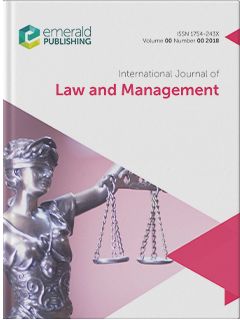
Journal of Entrepreneurship in Emerging Economies
Journal of Entrepreneurship in Emerging Economies (JEEE) is the first journal to focus on qualitative and quantitative...
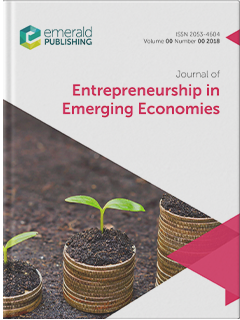
Sport, Business and Management: An International Journal
Sport, Business and Management promotes the development of a coherent, high-quality body of work that examines both the...
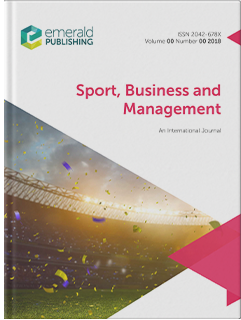

This journal is aligned with our responsible management goal
We aim to champion researchers, practitioners, policymakers and organisations who share our goals of contributing to a more ethical, responsible and sustainable way of working.
